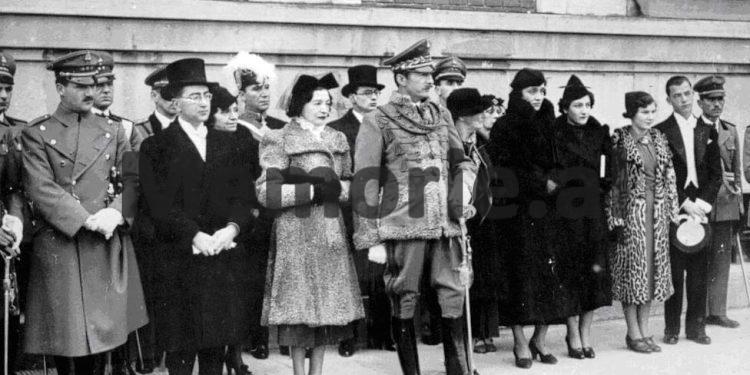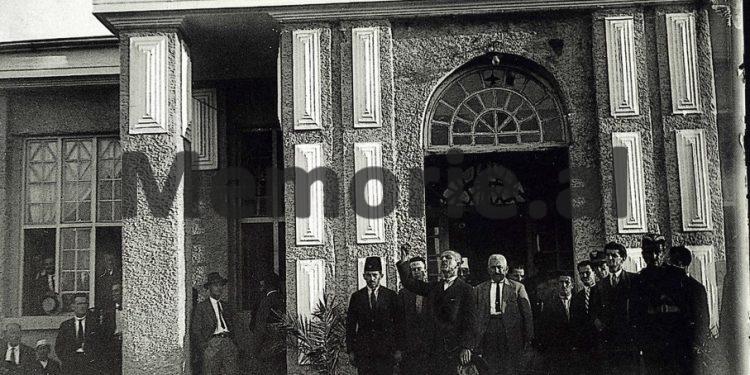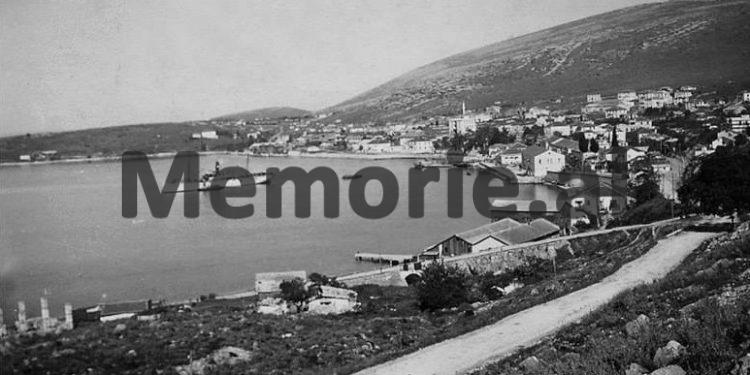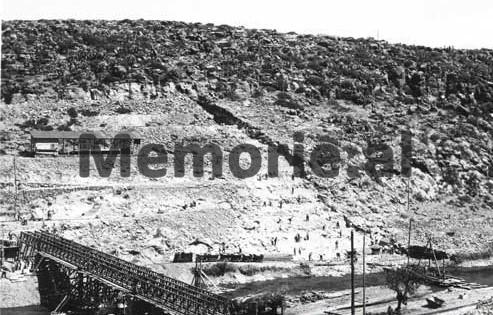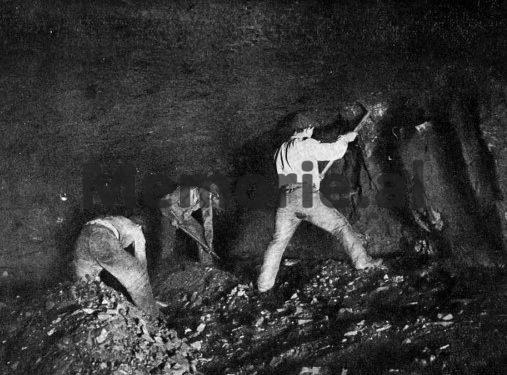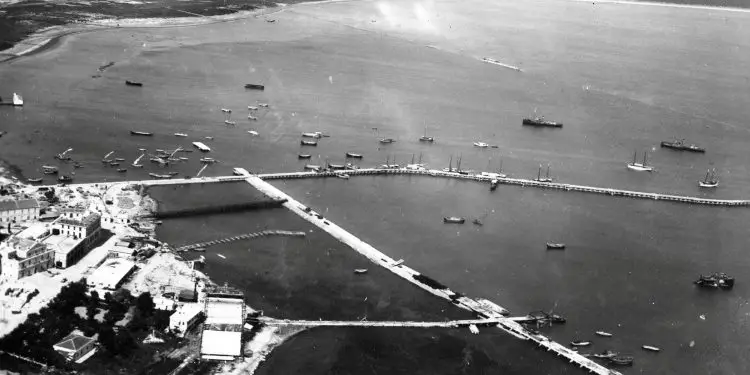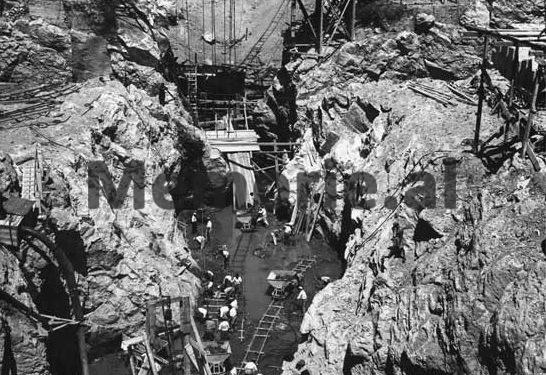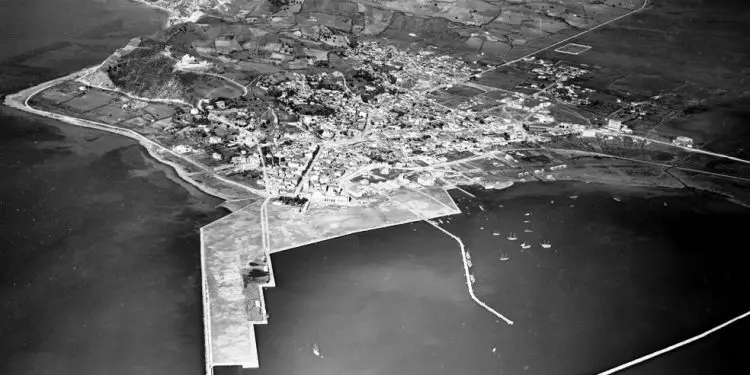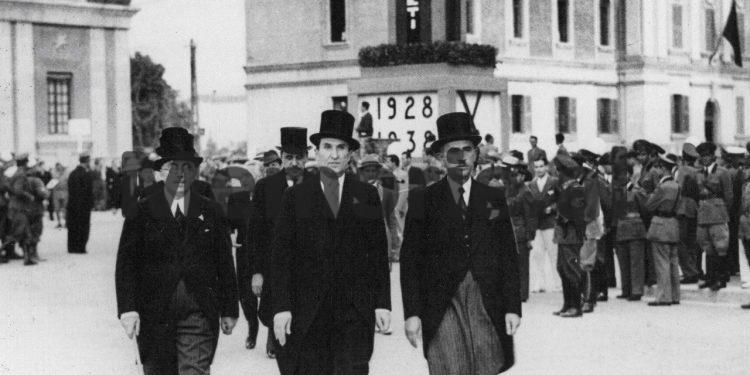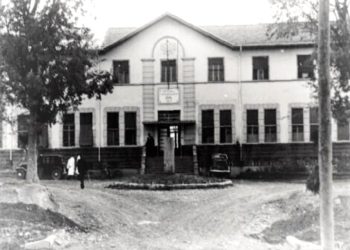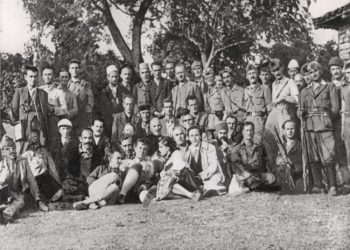Dashnor Kaloçi
Memorie.al publishes several documents where it comes to import-exports in which are part of the analysis made by the Statistics section in the Ministry of Finance of the Zog Monarchy in 1937, which provides foreign trade statistics and satisfactory balance sheets coming from the exports of Albanian traders with foreign countries such as: Italy, Greece, Yugoslavia, USA, Czechoslovakia, England, France, Switzerland, Egypt, Germany, etc. All these are made known by a voluminous publication of the Statistics Section of the Ministry of Finance of the Albanian government of the Zog Monarchy in 1938, which provides detailed figures for all import-export balance sheets, being assessed as quite satisfactory, not only compared to previous years, but also for the time. The publication of that book, which was accompanied by a small pamphlet entitled: “Some remarks on the foreign trade of Albania in the years 1934-1937”, had a great echo in the press of that time.
The period of the Zog Monarchy, or more precisely from the beginning of the 1930s onwards, thanks to a very advanced modern legislation for the time, as well as a series of economic agreements for free trade, which the governments of that time concluded with states different parts of Europe and beyond, Albania experienced a great economic development, and as a result an increase in the living standard of its population. One of the main sources of income provided at that time for the state budget, as well as for traders and private businesses, came from the large import-export trade that took place with various European countries and beyond, such as: Italy, Greece, Yugoslavia, USA, Czechoslovakia, England, France, Switzerland, Egypt, Germany, etc. All these are made known by a voluminous publication of the Statistics Section of the Ministry of Finance of the Albanian government of the Zog Monarchy in 1938, which provides detailed figures for all import-export balances, being assessed as quite satisfactory, not only compared to previous years, but also for the time. The publication of that book, which was accompanied by a small pamphlet entitled: “Some remarks on the foreign trade of Albania in the years 1934-1937”, had a great echo in the press of that time. One of the economic analysts of those years who wrote a series of articles related to the publication of the Statistics Section of the Ministry of Finance, was Ali Dhusho, from whom we have selected the following article.
Ali Dhusho: The release of “Statistics” a great success
In recent days, the Statistics section at the Ministry of Finance, has published, in a large book, our foreign trade statistics of 1937. Along with the statistics, a 14-page booklet was circulated, which it has titled: “Some remarks on the foreign trade of Albania in the years 1934-1937”. First of all, we feel obliged to praise the staff of the statistics section, for the very serious work they have done. This edition has no shortcomings and is much more complete and complete than those of previous years. Very useful and brochure attached to this year’s edition and completely reasonable remarks. This is a special merit of the Section that compiled and published them. The job now is to consider the remarks, the lessons that statistics give us, and to act on them, to act. In the figures given to us by statistics, an optimism is fully justified. From the study of the figures that show the quantity (quantity) of exports, it appears that these are increasing and from the figures that show the quantity of imports, it appears that the purchasing power of our people, however small, has increased. Both of these findings are satisfactory. With the exception of cheese, tobacco and a couple of second-hand items, all our export items have been greatly increased in quantity, compared to 1936. First order as quantity in occupied value: wool, then come liqueurs, olives, olive oil, animals etc. In terms of imports in terms of quantity, compared to 1936, we see a significant increase in silk fabric (from 1979 kg. Which we imported in 1936, in 1937 we imported 7,359 kg.) And in rice, leather worked and some other items a subtle addition or subtraction. In terms of value compared to 1936 we have in imports an addition of 2,089,666 fr. gold and in exports an additional 2,740,444 fr. ar. As a result, our deficit has been reduced by 650,778 fr. ar (deficits 1936 fr. ar 9.340.070; 1937 fr. ar.8.692.292).
Albania also imports from Brazil and Japan
In our imports, different countries have this order: Italy, Yugoslavia, Romania, Japan, England, Germany, America, Austria, Greece, Belgium, France, Hungary, Brazil, etc. In exports are as follows: Italy, Greece, America, Czechoslovakia, Yugoslavia, England, France, Switzerland, Egypt, Germany, etc. We have the surplus against Italy 3,117,356 fr, ar. and against Greece 288.999 fr. ar. We have a deficit against Yugoslavia 2,200,720 fr. gold, against Romania 2,172,925, Japan 1,268,533, Germany 948,895, England 930,967, Austria 671,676, Belgium 579,116, Hungary 404,502, France 403,391, Egypt 323,533, Brazil 304,323, France 1371.77, Bull 7136, Britain 724 24. ar. Compared to 1936, our foreign trade during 1937 has undergone the following changes for each country: Italy, additional exports 3.04.293 fr. gold, additional imports 704,178 fr. gold, Greece, additional exports 134,131 fr. gold, import discount 89,346, Inghliterra: additional import 89,346 fr. gold, additional exports 10,806 fr. ar. import discount 407.861, America: export discount 240.161 fr. gold, additional imports 1,014,678 fr. gold, Czechoslovakia: export discount, 9,831 fr. gold, import surcharge, 6,450, import discount, 100,343 fr. ar. Austria: export discount, 220,040 fr. gold, import surcharge, 181,763. Germany: additional imports, 7,140 fr. gold, export discounts, 68,838. Egypt: export discount, 4,439 fr. gold, additional imports 144,867 fr. ar. these figures are very interesting and from their study many lessons emerge. In conclusion, from the adjustment of our trade balance for 1937, it is not so bad.
Significant improvement of the foreign trade balance
In recent days, the Statistics section at the Ministry of Finance, has published, in a large book, our foreign trade statistics of 1937. Along with the statistics, a 14-page booklet was circulated, which it has titled: “Some remarks on the foreign trade of Albania in the years 1934-1937 “. First of all, we feel obliged to praise the staff of the statistics section, for the very serious work they have done. This edition has no shortcomings and is much more complete and complete than those of previous years. Very useful and brochure attached to this year’s edition and completely reasonable remarks. This is a special merit of the Section that compiled and published them. The job now is to consider the remarks, the lessons that statistics give us, and to act on them, to act. In the figures given to us by statistics, an optimism is fully justified. From the study of the figures that show the quantity (quantity) of exports, it appears that these are increasing and from the figures that show the quantity of imports, it appears that the purchasing power of our people, however small, has increased. Both of these findings are satisfactory. With the exception of cheese, tobacco and a couple of second-hand items, all our export items have been greatly increased in quantity, compared to 1936. First order as quantity in occupied value: wool, then come liqueurs, olives, olive oil, animals etc. In terms of imports in terms of quantity, compared to 1936, we see a significant increase in silk fabric (from 1979 kg. Which we imported in 1936, in 1937 we imported 7,359 kg.) And in rice, leather worked and some other items a subtle addition or subtraction. In terms of value compared to 1936 we have in imports an addition of 2,089,666 fr. gold and in exports an additional 2,740,444 fr. ar. As a result, our deficit has been reduced by 650,778 fr. ar (deficits 1936 fr. ar 9.340.070; 1937 fr. ar.8.692.292).
Albania also imports from Brazil and Japan
In our imports, different countries have this order: Italy, Yugoslavia, Romania, Japan, England, Germany, America, Austria, Greece, Belgium, France, Hungary, Brazil, etc. In exports are as follows: Italy, Greece, America, Czechoslovakia, Yugoslavia, England, France, Switzerland, Egypt, Germany, etc. We have the surplus against Italy 3,117,356 fr, ar. and against Greece 288.999 fr. ar. We have a deficit against Yugoslavia 2,200,720 fr. gold, against Romania 2,172,925, Japan 1,268,533, Germany 948,895, England 930,967, Austria 671,676, Belgium 579,116, Hungary 404,502, France 403,391, Egypt 323,533, Brazil 304,323, France 1371.77, Bull 7136, Britain 724 24. ar. Compared to 1936, our foreign trade during 1937 has undergone the following changes for each country: Italy, additional exports 3.04.293 fr. gold, additional imports 704,178 fr. gold, Greece, additional exports 134,131 fr. gold, import discount 89,346, Inghliterra: additional import 89,346 fr. gold, additional exports 10,806 fr. ar. import discount 407.861, America: export discount 240.161 fr. gold, additional imports 1,014,678 fr. gold, Czechoslovakia: export discount, 9,831 fr. gold, import surcharge, 6,450, import discount, 100,343 fr. ar. Austria: export discount, 220,040 fr. gold, import surcharge, 181,763. Germany: additional imports, 7,140 fr. gold, export discounts, 68,838. Egypt: export discount, 4,439 fr. gold, additional imports 144,867 fr. ar. these figures are very interesting and from their study many lessons emerge. In conclusion, from the adjustment of our trade balance for 1937, it is not so bad.
Significant improvement of the foreign trade balance
Albania has plenty of items to export, and can produce other types, but these in terms of quality and their appearance as a commodity in foreign markets do a lot to be desired. The state, according to us, should be interested in improving our products in terms of quality and organizing their trade. In terms of quality improvement, it takes systematic work and a long time to pass. Fortunately, there is a time when agricultural and livestock technical services as well as forestry show a commendable activity for improving the quality of our products. Even today, perhaps soon, some satisfactory conclusions can be seen, thanks to the technicians on the side. But the state should be mainly interested in the diffusion (distribution) of our products. It is a mistake to believe that we can only gain this through trade treaties, which are more “apostolic oaths” than serious factors in increasing exports. We need to organize our foreign trade, so that our product is presented to the market, to the foreign consumer in a synchronized form. Today, our goods are presented abroad “not worse”. If it is a little poor in quality, it is twice as poor in the export trader who, as he gets from the product, sends it even worse. He does not show any serious care in his appearance and how to find a better market, where he will put it in a bigger wholesale and at a better price, “does not bother at all”. I used to trade two steps away from him, if he sold them there, well, if not … crisis. For these and many other reasons, we had proposed that our foreign trade be organized, creating a special organization as well. An Institute for Foreign Trade, which will take care of finding new markets and especially for the presentation of our products. The need for such institutes has been felt by almost all countries of the world, including those that have a very large development and have created it. So, we have to create some more that we are far behind as an export trader. But we will talk about this at length once again …!
Improving the purchasing power of the people
The improvement of the purchasing power of the people, we find as a consequence of a wise policy of the present Government, which in the part of our national production has shown an activity paying great attention, being interested in helping them our productive classes. In terms of value compared to 1936, our trade during 1937 shows: in imports an increase of 12.34% and in exports an increase of 36.86%. From the point of view of quantity, the difference, in additional percentage, is much greater than that of value, in favor of our exports. Also, the analogy between the increase in quantity and that in value compared to 1936, is not for exports, the same seen in imports. In exports this analogy is less than in imports. This proves that the rise in prices of our goods is analogous to that of foreign goods. The price of our goods either did not improve, or this improvement is in a very small percentage in contrast to the imported items, the price of which has generally increased by a good percentage. This should make us think. The goods we export do not earn their price in foreign markets. This, obviously, is due to the weakness of their quality and appearance. Therefore, all our attention should be paid to both of these points.
Why should Albanian exports be increased?
We have claimed many times that a weighting of our trade balance should not be sought by restricting imports, which for us, for our life and development, are necessary, but by increasing exports. Our imports will be limited only when we can produce what we import locally, as was done last year with cement. If the state is interested, as it was interested in cement, to create the sugar industry, we will have a deficit reduction of 500,000 fr. ari. A look at the range of goods we import convinces us that it is impossible for them to close the door of importation and it is quite harmful to restrict their import, without first securing for domestic production. We import large quantities of corn, cotton fabrics, sugar, processed leathers, building materials, yarn, industrial machinery, etc., things without which we cannot live and develop. It is not that we cannot restrict these imports, but we cannot and should not seek this through direct legal measures, but through a serious work for their production in the country, as was done with cement.
The sugar industry must be established in Albania
In the annual analysis of foreign trade statistics conducted by the Ministry of Finance of the Zog Monarchy in 1937, it was concluded, among other things, that in Albania the time had come to establish the sugar production and leather processing industry in the country. In this regard, the publication of that ministry said: “We can easily create the sugar and leather industry which provide a boom. We can also create other small industries whose raw material we can find locally. Mostly, we can save some 2,000,000 a year by exporting them for corn and wheat and increase our revenue from the export of our livestock, agricultural and forestry items. It is not in our honor to import corn from abroad as we have abundant and fertile soil. In short, we need to implement an agricultural, livestock, and forestry policy. Our governments must show every care and interest, in order to give the farmer every opportunity to use the Albanian land more intensively and more methodically. And to a lesser degree. They should be interested in creating the necessary circumstances, within which the Albanian capital can work, creating some new industries. As for the first point of the policy to be implemented for the more systematic use of our economic resources, agriculture, livestock and forests, we do not find ourselves so strong and prepared to do any concrete proposal, but regarding the putting of the Albanian capital to work for the creation of some new industries, we are deceived that we have a certain ability to propose”.
Statistics economists’ opinion on reducing tax evasion:
“Reduction of customs duties, limited smuggling”
In the publication of the Ministry of Finance of Albania in 1937 regarding foreign trade statistics, among other things, the opinion of economists is given for the benefit that the reduction of customs duties brought in that year, which conditioned the reduction of smuggling for many goods coming from imports. In this regard, the publication in question, among other things, states: “Even our imports during 1937, increased compared to 1936, both in quantity and value. Thus, for quantity, we have the following additions: Wheat, 44.75%, sugar, 10.8%, worked leather, 75%, woolen yarn, 33.5%, cotton yarn, 11.4%, silk fabric, 25%, automobiles, 30 %, We have growth, corn 21.5%, cement 27%, and some other items. From what can be seen, a very large addition is found in the silk fabric. This addition, the Statistics Section explains with the fact that the customs tax was reduced and thus the smuggling, which was exercised the following year due to high customs, was limited. It is safer that high taxation feeds smuggling because it presupposes hassle-free enrichment, but we do not recall that the ascertaining increase was only caused by the reduction of customs duties. This is a key factor, but there are other factors as well, among which an important place is occupied by the improvement of the purchasing power of our people. The same thing, if the purchasing power of our people increased, the other figures tell us, both of the items they trade and of those who show discounts. In fact, the import of cement and tobacco has decreased, because during the last year Albania produced the cement itself as much as it needs and had a very good production of corn. As for the other deductions, they are insignificant. But we see an addition to wheat, rice, sugar, coffee, etc., first-hand needs of the poor people “. / Memorie.al




